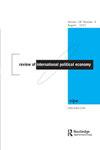Centering social reproduction during crisis: women’s experiences of food insecurity in Myanmar, Papua New Guinea, and the Philippines during the COVID-19 pandemic
IF 3.7
1区 经济学
Q1 ECONOMICS
引用次数: 0
Abstract
studies examining the gendered impacts of cOViD-19 have shown that women have been disproportionately impacted by the socio-economic effects of the pandemic across multiple areas, including economic and food security. We sought to understand how the impacts of the pandemic on women’s food security in the indo-Pacific region were influenced by women’s roles in performing the bulk of unpaid work and care involved in social reproduction. We interviewed 183 female farmers and vendors (market stallholders) in Myanmar, Papua New Guinea, and the Philippines. We found that across all three countries examined, women described an impact on their food security as well as their labour, processes of reproduction, and private household dynamics. Women’s household food security was impacted because of decreased income, increased business costs, rising food costs, and additional household costs. Further, our findings show that because it was typically women’s responsibility to manage household food security, women were anticipating food shortages and engaging in risks to mitigate against food insecurity. these findings demonstrate the urgent need to introduce national and international crisis response measures that differentiate the gendered social and economic impacts of crises that centers, rather than marginalizes, social reproduction in analyses.危机期间以社会再生产为中心:新冠肺炎大流行期间缅甸、巴布亚新几内亚和菲律宾妇女的粮食不安全经历
对新冠肺炎性别影响的研究表明,在包括经济和粮食安全在内的多个领域,妇女受到疫情社会经济影响的比例过高。我们试图了解新冠疫情对印度太平洋地区妇女粮食安全的影响是如何受到妇女在社会再生产中承担大部分无偿工作和护理的影响的。我们采访了缅甸、巴布亚新几内亚和菲律宾的183名女性农民和小贩(市场摊贩)。我们发现,在接受调查的所有三个国家中,妇女都描述了对她们的粮食安全、劳动、生育过程和私人家庭动态的影响。由于收入减少、商业成本增加、食品成本上升和家庭成本增加,妇女的家庭粮食安全受到影响。此外,我们的研究结果表明,由于管理家庭粮食安全通常是妇女的责任,妇女预计会出现粮食短缺,并承担风险以缓解粮食不安全。这些发现表明,迫切需要引入国家和国际危机应对措施,区分危机的性别社会和经济影响,这些危机在分析中以社会再生产为中心,而不是边缘化。
本文章由计算机程序翻译,如有差异,请以英文原文为准。
求助全文
约1分钟内获得全文
求助全文
来源期刊
CiteScore
9.20
自引率
9.30%
发文量
47
期刊介绍:
The Review of Political Economy is a peer-reviewed journal welcoming constructive and critical contributions in all areas of political economy, including the Austrian, Behavioral Economics, Feminist Economics, Institutionalist, Marxian, Post Keynesian, and Sraffian traditions. The Review publishes both theoretical and empirical research, and is also open to submissions in methodology, economic history and the history of economic thought that cast light on issues of contemporary relevance in political economy. Comments on articles published in the Review are encouraged.

 求助内容:
求助内容: 应助结果提醒方式:
应助结果提醒方式:


